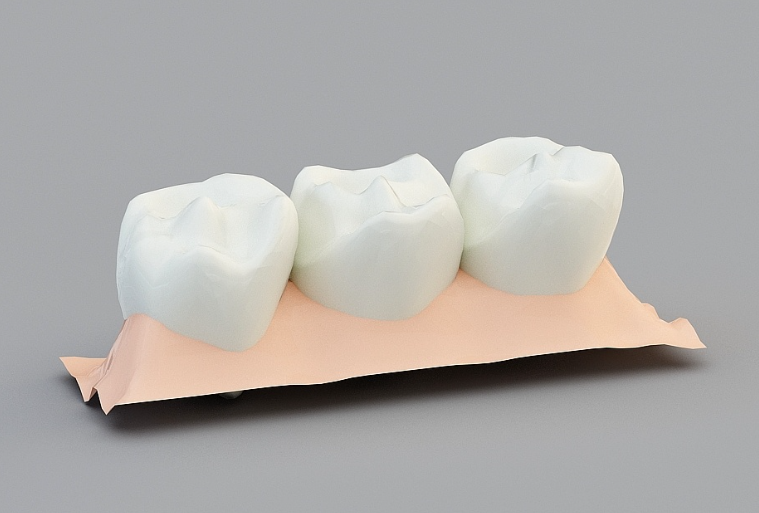
Eating teeth is an insignificant thing in life, many people do not care. Little do you know, frequent dental congestion is actually a harbinger of some dental diseases.
As you get older or suffer from periodontitis, the gums will gradually shrink, causing the gap between the teeth to become larger and food to be easily embedded.
Wisdom teeth When wisdom teeth sprout, due to lack of space, they often occupy the space of neighboring teeth, and it is easy to jam food.
Tooth decay If the tooth decay is not treated in time, the formation of a "wormhole", food will be inserted into the hole, causing plugs.
Missing teeth Uneven teeth appear missing, misaligned, jagged and other phenomena, which may lead to stuffed teeth during meals.
Teeth wear out When teeth wear out, the edges or tips of the teeth become sharp, and fibers from food are squeezed between the teeth when you chew.
Dental floss should be used first after the plug, if the plug is very serious, to the hospital in time, according to the situation for appropriate treatment. Such as filling cavities, removal of wisdom teeth, insertion or periodontal treatment, can effectively solve the problem of jammed teeth.
After getting up in the morning, you should brush your teeth first and then drink water
Many people get up in the morning have the habit of drinking a glass of water, whether to brush your teeth first or drink water first?
After getting up in the morning, you should brush your teeth first and then drink water to avoid disease from the mouth, and it is not appropriate to brush your teeth immediately after meals, otherwise it will damage your teeth.
Your body is still digesting food while you sleep. The mouth provides a warm and humid environment, "conducive" to the growth of bacteria, after a night of hotbed "cultivation", there are a lot of bacteria remaining in the mouth.
Therefore, after getting up in the morning, before adding any food, you must brush your teeth first to ensure that the mouth is clean and avoid disease from the mouth. After brushing your teeth, you can replenish water in time.
Many people will brush their teeth immediately after eating, in fact, it is harmful to dental health. Wu Jie said that after a meal, there are food residues on the teeth, and if you brush immediately, it will push the "acid" into the depth of the tooth enamel, and even the dentin under the tooth enamel.
Brushing your teeth immediately after a meal not only does not protect your teeth, but can damage them. Generally speaking, it is not recommended to brush your teeth within half an hour to an hour after eating, and you should wait until the pH in the mouth reaches a balance before brushing your teeth.
As for whether toothpaste needs to be dipped in water before brushing teeth, Wu Jie said that ordinary toothpaste dipped in water after brushing or brushing directly can play a role in cleaning the mouth.
Desensitizing toothpaste or whitening toothpaste, it is not recommended to dip in water before brushing, these toothpastes themselves have active ingredients, dipping in water is likely to destroy these ingredients, the effect will be greatly reduced.
Here are seven tips for protecting your teeth: Floss, chew more carrots...
-
Chew more apples and carrots. Crunchy food acts like a toothbrush, helping to remove stains from teeth. You can also eat more foods containing calcium, vitamin D and omega 3, which can strengthen teeth and gums, such as green leafy vegetables, citrus fruits, salmon and dairy products.
-
Choose a toothpaste that contains baking soda. McCullin recommends brushing your teeth at least twice a day, preferably after every meal, to help remove food and plaque between your teeth and gums.
Slightly alkaline baking soda can effectively neutralize harmful acids, help remove plaque, strengthen tooth enamel, and have a whitening effect. You can use a soft-bristled electric toothbrush to deeply clean each tooth.
-
Floss. Floss can clean teeth and gum gaps that cannot be reached by toothbrushes, preventing tooth decay and gum disease. McCullin recommends flossing three meals a day before brushing your teeth.
-
Quit smoking. Any tobacco product can cause tissue damage in the mouth and stain teeth. Tobacco also weakens the immune system and causes gum infections, making it difficult for teeth and gums to heal after treatment.
-
Use mouthwash. Using an over-the-counter mouthwash daily to help remove food debris can help reduce plaque and prevent or reduce the risk of gingivitis.
-
Go to the dentist twice a year. Dentists can detect the early signs of gum disease, treat it before it becomes serious, and completely remove the tartar that calcifies and deposits on teeth.
-
Drink plenty of milk and water. More than 95% of calcium in the human body is found in the bones and teeth, drinking milk can supplement calcium, strong teeth and bones. Drinking lots of water can wash away food and bacteria, preventing them from sticking together after meals and producing acid that can erode teeth. If you can't brush your teeth or floss after meals, drinking a cup of warm water can also help keep your mouth healthy.

